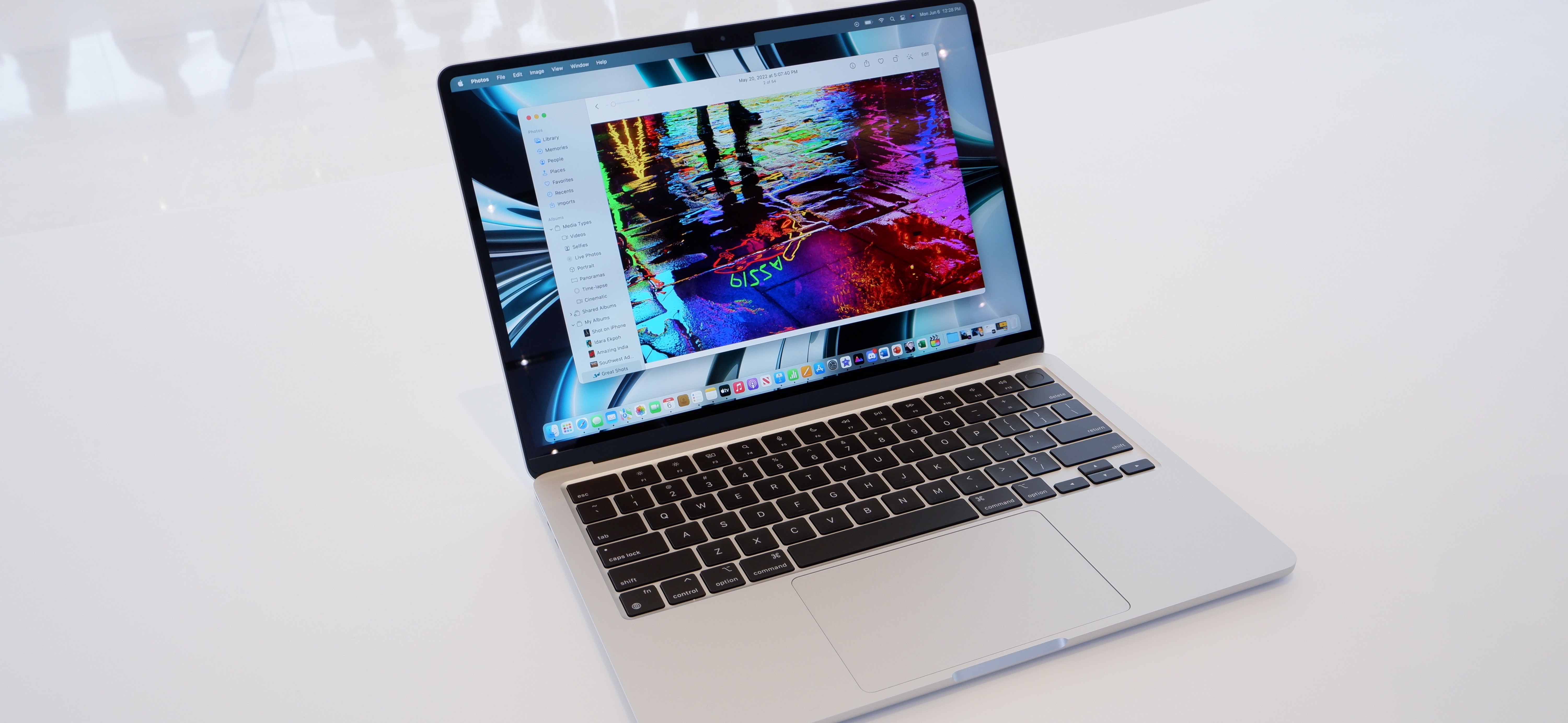MacBook Air M2 benchmarks just leaked — and it looks like a powerhouse

It’s been over a month since the MacBook Pro M2 and MacBook Air M2 were officially unveiled. The new Air is available for pre-order now, starting at $1,199, and there’s a lot of anticipation for this laptop.
While our M2 MacBook Air hands-on review is now live (and very positive), would-be buyers are keen to know whether it delivers on the promised 20% speed boost over the previous generation. And thanks to a new listing on the Geekbench benchmarking site, it looks like we can confirm Apple’s figures.
As spotted by Mr. Macintosh on Twitter (opens in new tab), the listing (opens in new tab) shows the 3.49GHz Apple M2 chip producing a single-core score of 1,899 and offering multi-core performance of 8,965. For comparison, the site’s average M1 MacBook Air scores (opens in new tab) are 1,706 for single-core and 7,420 for multi, meaning a boost of 11.3% and 20.8%, respectively.
Of course, despite having a ‘2’ in the title, the chip isn’t the most powerful in Apple’s computing arsenal. That honor goes to the M1 Ultra which in the Mac Studio, achieves scores of 1,754 and 23,356 in the two tests (opens in new tab). These scores will only likely be bettered when Apple releases the M2 Pro, M2 Max and M2 Ultra chips.
But it’s important to emphasize that said M1 Ultra chip would set you back at least $3,999 in the Mac Studio. The 2022 MacBook Air, meanwhile, starts at $1,199 and, like its predecessor, is completely fanless.
And if you’re not entirely convinced, one other interesting data point for you. As spotted by MacRumors (opens in new tab), these scores are actually superior to the base model Mac Pro tower and its 8-core Intel Xeon W processor. Yet said desktop will still cost you $5,000 more directly from Apple (opens in new tab), reminding us once again how truly impressive Apple Silicon is proving to be.
MacBook Air M2 vs MacBook Pro M2
Of course, the new MacBook Air isn’t the only new Apple laptop that features the M2 chip. Apple has also released a MacBook Pro M2 13-inch, mirroring its strategy with the M1 in 2020. Geekbench numbers were leaked earlier, and proved barely distinguishable from the above figures for the MacBook Air: 1,919 in single-core and 8,928 in multi-core.
That isn’t hugely surprising, because benchmarks showed that there wasn’t a great difference between the M1 models either. But it may not quite tell the full story.
As mentioned above, the M2 MacBook Air has a super-thin, fanless design. That ensures it’s silent in operation, but also means that it’s more susceptible to overheating if you overwork it.
The M2 MacBook Pro has active cooling, and that means it’ll likely perform better if you’re undertaking intensive work for an extended period, as the fans can kick up to cool things down and prevent throttling. Otherwise, it’s pretty similar, though it does also reintroduce the Touch Bar. Prices start at $1,299 — $100 more than the new Air.
That makes the Pro a tough sell, especially as it misses out on features that the redesigned Air offers, including a larger Liquid Retina display, a 1080p webcam and MagSafe charging. It’s in a tricky no-man’s land between the cheaper MacBook Air and more advanced 14- and 16-inch MacBook Pros, with their M1 Pro and Max chips. It’s fair to even question why the MacBook Pro M2 exists.
The one big advantage the entry-level Pro should have, however, is battery life. The new Air is rated for 15 hours of wireless web surfing, versus 17 hours for the new 13-inch Pro. In fact, the new MacBook Pro M2 lasted an epic 18:20 in our battery testing, making it the longest lasting laptop we’ve tested ever.
Stay tuned for our own MacBook Air M2 benchmarks and full rated review.
For all the latest Technology News Click Here
For the latest news and updates, follow us on Google News.
